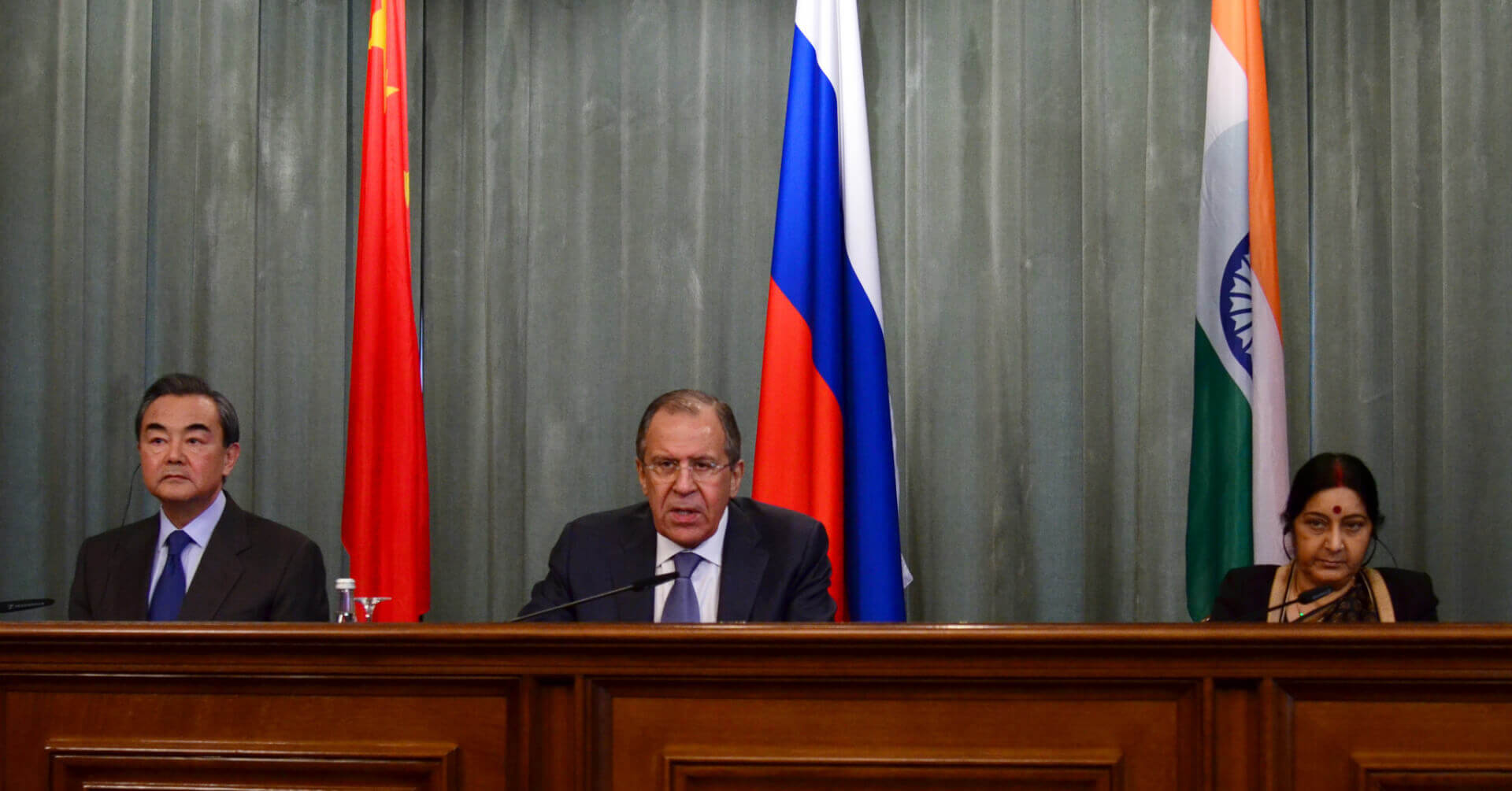India’s Minister of External Affairs Subrahmanyam Jaishankar confirmed his participation in the upcoming Russia-India-China (RIC) trilateral foreign ministers summit slated to take place virtually on 23 June. The meeting with Russian Foreign Minister Sergey Lavrov and Chinese Foreign Minister Wang Yi comes in the midst of heightened tensions between New Delhi and Beijing as their troops engage in deadly standoffs at the Line of Actual Control (LAC) in Eastern Ladakh.
On Wednesday, Lavrov told local Russian reporters that the topics for the meet had been decided and are not going to include the discussion of any bilateral matters, given the format of the summit. These remarks are extremely significant since Moscow has been vocal about its favourable posturing towards bilateral mechanisms to deescalate the issue rather than an externally-led mediation process. Some Indian media houses have even interpreted this as positive posturing towards New Delhi in the conflict.
On Wednesday, following the killing of 20 Indian Army personnel by Chinese troops in the Galwan Valley, Jaishankar and Yi held a telephonic conversation wherein they agreed to “cool down” tensions immediately to maintain peace in the border area as per their bilateral agreements. During the call, Jaishankar conveyed India’s strong protest to Yi, saying that the unprecedented escalation may have a “serious impact” on ties between the two countries. He also warned Beijing to reassess the course of its actions and to take corrective measures.
At the last RIC summit, held in Zhejiang on 27 February 2019, late Indian External Affairs Minister Sushma Swaraj and her counterparts strongly reaffirmed their commitment to an equal and common strategy for sustainable security, discussing issues of terrorism, drug trafficking, and potential cooperation in combatting a possible arms race in outer space. They also discussed their support for peaceful and diplomatic means outlined by the UN to solve the issues in Afghanistan, Syria, Palestine, Libya, and Yemen, in addition to a standing commitment to a rules-based World Trade Organization (WTO).
Most importantly, the leaders reiterated the importance of the Shanghai Cooperation Organization (SCO) in promoting multilateral policymaking, while underscoring the importance of the UN in regulating and developing guidelines for the multilateral sharing and usage of information communication technologies (ICTs). While several news sources had reported that India was looking to gain support for the Pulwama incident with Pakistan at the summit last year, official documents did not reflect any discussion on New Delhi’s bilateral engagements with Islamabad.
Further, at the margins of June 2019’s G20 Summit in Osaka, leaders of the three countries had met informally to speak on contemporary economic and security challenges, discussing the global trading regime and the need for WTO reform.
MEA Spokesperson Anurag Srivastava on Thursday said that the upcoming RIC special session will “commemorate the 75th anniversary” of the creation of the United Nations and the victory over Nazism in the Second World War, and that the ministers will be discussing the current global pandemic situation and its effects on financial stability and global security. Responding to concerns about the Sino-Indian border skirmishes, Russia’s ambassador to India, Nikolay Kudashev, tweeted late on Wednesday that the reality of the RIC is undisputed and that there are “no indications that it might be frozen.”
Image Source: The Indian Wire
India Confirms Attendance to Russia-India-China Trilateral Meet on 23 June
The ministerial-level meet will not include discussions on the Sino-Indian border issue
June 19, 2020

